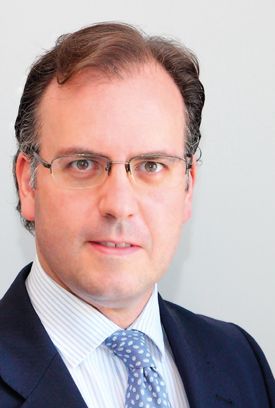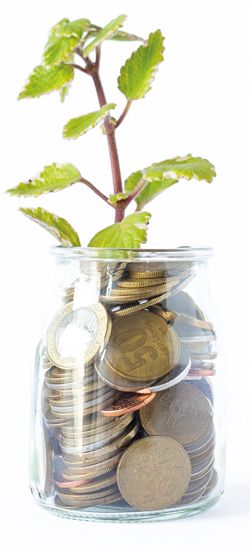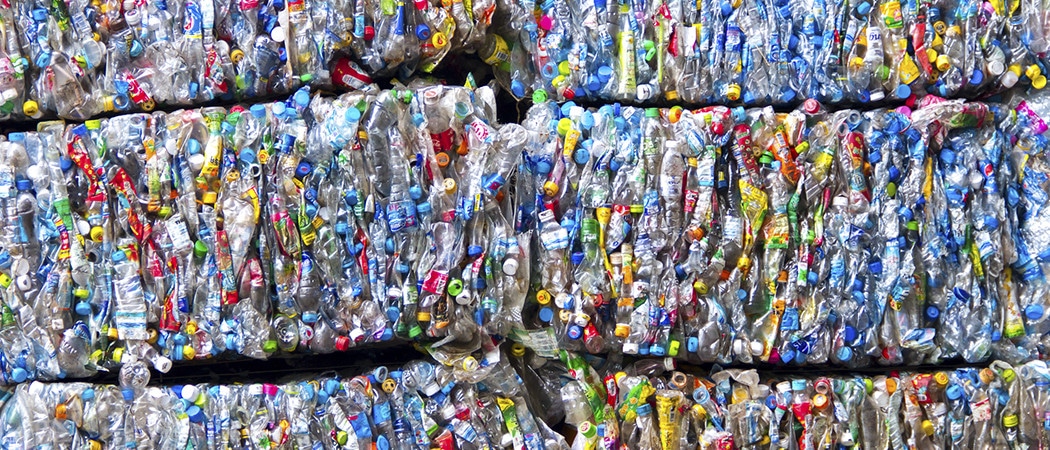In 1965, Bob Dylan wrote down on a piece of paper the lyrics of a song, Like a Rolling Stone, which to this day remains a central theme of his concerts. In June of that same year, that is to say, over 54 years ago, MAPFRE also wrote into its statutes what continues to be the central theme of its business and successive strategic plans: Corporate Social Responsibility (CSR), which has progressively evolved toward a more general concept, namely sustainability, which is the term currently used. “Sustainability is embedded in the company’s DNA,” declares Alberto Matellán, Chief Economist at MAPFRE Inversión.
TEXT DANIEL BADÍA | PHOTOGRAPHS MAPFRE, ISTOCK
MAPFRE fully assumes the impact of its commercial activity on its surroundings and on society. Its sustainability policy and plan both facilitate the integration into its business of good governance, social and environmental aspects. And it started applying this philosophy likewise in the investment field. As Matellán explains, the group launched its commitment to Socially Responsible Investment two years ago, shortly after the arrival in the group of José Luis Jiménez, general manager of Investments. From that moment on, a range of products was launched that falls in line with MAPFRE’s commitment to a sustainable value creation model.
In the same vein, together with the French asset management boutique Financière Responsable (LFR), the company has just announced the launch of MAPFRE Inclusión Responsable, a mutual fund which seeks to invest in companies that promote the inclusion of people with disabilities. This is the first asset of these characteristics launched anywhere in the world. As Matellán points out, right now this fund has just over 20 companies in its portfolio and individual conversations were held with each of them prior to selection. “The idea is to have no more than 30,” he adds.
The aim of the fund is to empirically demonstrate that the inclusion of people with disabilities in companies is a profitable proposition. In fact, back testing by the fund’s management team shows that, over the past five years, the portfolio of companies selected for promoting such inclusive policies would have been four times more profitable than the market as a whole.
The promotion of inclusion is a policy that MAPFRE itself actively pursues. The company has 902 employees with disabilities working in the Group, which represents 2.5 percent of the total workforce worldwide. The company is publicly committed to raising this figure so that people with disabilities will account for at least three percent of the global workforce by 2021.
In addition to this product, for the moment marketed exclusively in France, MAPFRE has launched two further funds that fulfill its environmental, social and governance (ESG) criteria. In 2017 it launched the Good Governance Fund, a mutual fund which combines investment value with good corporate governance. This project was born out of the external collaborations MAPFRE maintains with universities in order to conduct research into the group’s investment strategy. In particular, the University of Siena and the Cranfield School of Management conducted two studies which showed that investment in socially responsible companies with good corporate governance is more profitable in the long term.

Alberto Matellán, Chief Economist at MAPFRE Investment, arranged the launch, together with the french asset management boutique la Financière Responsable (LFR), of MAPFRE Inclusión Responsable, a mutual fund which seeks to invest in companies that promote the inclusion of people with disabilities.
And in October last year, MAPFRE announced the Capital Responsable mutual fund. It invests in stocks and fixed-income securities of European companies, selected on the basis of their ESG qualities, with a strategy that puts the focus on capital preservation.
As Matellán explains, in order to select the securities which are to make up the portfolios of the various funds, both an a priori and an a posteriori analysis are carried out. For the former, they are helped by the team at LFR, in which MAPFRE has held a 25 percent stake since 2017. “Our relationship with our French partners enables us to count on our own source of information for selecting securities, something that sets us apart from our other competitors,” MAPFRE’s chief economist adds. Once the companies to be included in the portfolio have been selected, a regular monitoring of the equity products is set in place, which will lead to a report being drafted and presented before the Risk Committee.
In short, this is active, dynamic management but, as Matellán points out, this does not mean that there is a lot of portfolio turnover. “It’s active in the sense that it deviates from the indexes more than normal. There isn’t much turnover because what we seek are stable companies,” he explains.
This socially responsible investment is not to be limited to these investment products; MAPFRE wishes to progressively apply it to the whole balance sheet. In addition to managing the savings of its clients through mutual and pension funds, the Group makes investments amounting to 53,172 million euros, according to the latest data at the close of the first half of 2019. 56 percent of the investment (29,992 million euros) corresponds to sovereign debt, while 18 percent (9,370 million euros) is in corporate fixed-income securities, five percent in equities (2,559 million euros) and three percent (1,465 million euros) in mutual funds. Precisely, due to the weight of the fixed income portion, a methodology is being incorporated within the Asset Management (AM) area to make sure that these investments are likewise being made according to socially responsible criteria.
Over to the balance sheet
But that commitment by MAPFRE is not only manifested in the design of products that meet these requirements. In May 2017, the company joined the global network of signatories to the Principles for Responsible Investment (PRI), an initiative developed within the UN Global Compact, which aims to comprehend the impact that environmental, social and governance issues have on investments, and advise the signatories on how to integrate these matters into their decision-making processes. MAPFRE has been a signatory to the UN Global Compact since 2004 and, as an insurance company, is also signed up to the sustainable insurance principles promoted by the United Nations.
In addition to managing the savings to its clients through mutual and pension funds, the Group makes investments amounting to 53.172 million euros, according to the latest data at the close of the first half of 2019..
56% of the investment 29.992 million euros correspond to sovereign debt
While 18% 9,370 million euros are in corporate fixed income
5% in variable income 2.559 million euros
And 3% 1.465 million euros in mutual funds
More recently, in May of this year, MAPFRE became a partner of SpainSIF, a non-profit organization that is a point of reference for all financial entities on questions related to sustainable, responsible investment in Spain. Indeed, our company closed the ISR 2019 Week, a series of events organized in different cities around Spain with the aim of discussing issues related to sustainable, responsible investment and ESG criteria in investment decision-making.
SpainSIF’s mission is, in fact, to promote the integration of environmental, social and good governance criteria in investment policies through dialog with the different social groups, thus contributing to sustainable development, as well as to raise awareness and foster changes in investment processes within the investment community, public administrations, companies and citizens in general.
Clear commitment
MAPFRE is therefore a group committed to sustainable development and, in particular, the protection of individuals and the fight against climate change. The group has just approved the 2019-2021 Sustainability Plan where, among other actions, the company will cease investing in power companies where over 30 percent of their revenues stem from energy produced from coal. Moreover, it will not insure the construction of new coal-fired power generation plants, or the development of new mines seeking to exploit this mineral.
This commitment has received international recognition. For example, the FTSE Russell Group has just announced that MAPFRE is once again present this year in the FTSE4Good, an index comprising companies that stand out for their good practices in Corporate Social Responsibility (CSR). The FTSE4Good is one of the most important international barometers, precisely for gauging the performance of companies in the fields of sustainability and CSR. And this is in addition to our entry last year in the Dow Jones Sustainability Index, which lists the 317 most sustainable companies, according to economic, environmental and social criteria. Sustainability is, therefore, the prime constituent of our company’s DNA.
In May 2017, the company joined the global network of signatories to the Principles for Responsible Investment (PRI), an initiative developed within the UN Global Compact, which aims to comprehend the impact that environmental, social and governance issues have on investments, and advise the signatories on how to integrate these matters into their decision-making processes





